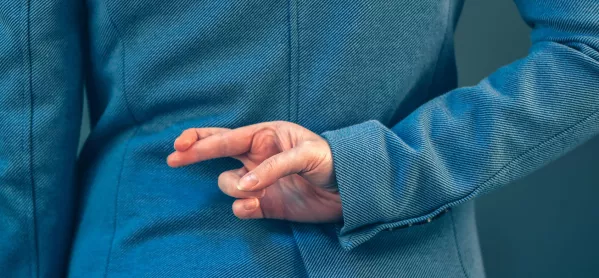“There’s sometimes a difference between truth and fact, Ruth.”
Tom the archaeologist was slightly exasperated by a comment I had just made during his tour of Winchester.
We were at Hyde Abbey, the burial place of King Alfred, and I, ever the teacher, had confidently told the group who had not asked: “Yes, he’s the one who burned the cakes.”
Quick read: Want your students to write well? Then write with them
Quick listen: Is it a school’s job to prepare pupils for work?
Want to know more? School leadership: trust has to come from the top
Tom, possibly having heard that more than once, winced.
In the following conversation, I realised his frustration with me.
As an archaeologist, he was showing us the physical remains of buildings, and talking through physical evidence from the ground and primary documents linking it together to find our way to a form of probable truth about those times. And I had thrown in a “truth” that was widely known, but highly debatable.
It was a story I had taught my students (thanks to a scheme of work I was given), but now I started to wonder whether I had been doing them a disservice.
Had I made it explicit to them that the reason this story had survived was that it painted Alfred as a cerebral monarch? After all, burning a cake isn’t exactly newsworthy (or at least it wasn’t until The Great British Bake Off came along).
Mapping meaning
Likewise, I shared a picture on Twitter recently of a large global map we’ve just put up in school. It got a lot of likes, but also (rightly) a lot of comments about accuracy.
It’s not a perfect map - many are not. And in our curriculum and assemblies we do show pupils different versions, and explore the political and historical reasons behind the differences, but I do question whether we have embedded that enough, or whether they will go into adulthood thinking of the world in this inaccurate way.
When we teach others, we have power. We are giving testimony to others, whether it comes to geographical locations or the lives of medieval monarchs.
Without us as a source, pupils would not be able to cover the broad range of curriculum - none of us can build an empirical understanding of the world individually and from scratch.
Trusted testimony
So are our pupils able to trust our testimony?
Sometimes pupils will be able to use their perception as a gauge for certainty. If I tell a pupil that their handwriting is neat, they will have a good idea of whether that is the case or not.
But at other times I am a source of information that they are not able to check for probability. I have that knowledge sourced from others who I do not have the capacity to check and so on.
In order for pupils to be able to trust us, teachers should have a basic concept of the complexities of what knowledge is. Two things in particular strike me as important in teaching pupils.
Firstly, although we may share language, people are not all defining key terms in the same way. Instead of debating ideas, people associate different ideas with the same words and engage in frustrating and often fruitless disputes with no independent arbiter to put us out of our misery.
Secondly, what we consider and teach as truth is often constructed. I attach no moral judgement to this. It is necessary to get on with everyday life. But an understanding of how and why knowledge is constructed is important if we are going to produce thinkers.
All this from burned cakes.
Ruth Luzmore is headteacher at St Mary Magdalene Academy. She tweets @RLuzmore





